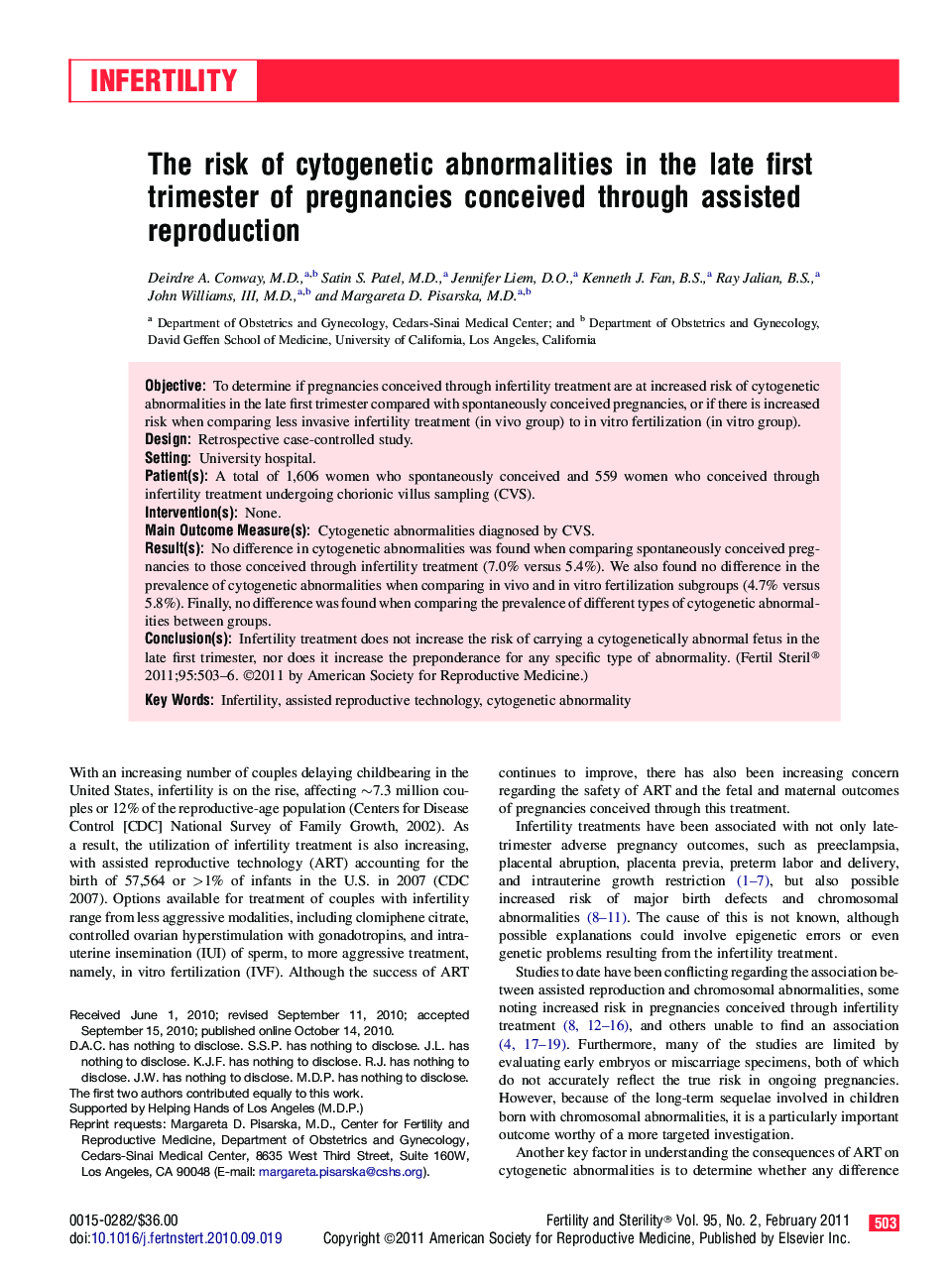| Article ID | Journal | Published Year | Pages | File Type |
|---|---|---|---|---|
| 3939530 | Fertility and Sterility | 2011 | 4 Pages |
ObjectiveTo determine if pregnancies conceived through infertility treatment are at increased risk of cytogenetic abnormalities in the late first trimester compared with spontaneously conceived pregnancies, or if there is increased risk when comparing less invasive infertility treatment (in vivo group) to in vitro fertilization (in vitro group).DesignRetrospective case-controlled study.SettingUniversity hospital.Patient(s)A total of 1,606 women who spontaneously conceived and 559 women who conceived through infertility treatment undergoing chorionic villus sampling (CVS).Intervention(s)None.Main Outcome Measure(s)Cytogenetic abnormalities diagnosed by CVS.Result(s)No difference in cytogenetic abnormalities was found when comparing spontaneously conceived pregnancies to those conceived through infertility treatment (7.0% versus 5.4%). We also found no difference in the prevalence of cytogenetic abnormalities when comparing in vivo and in vitro fertilization subgroups (4.7% versus 5.8%). Finally, no difference was found when comparing the prevalence of different types of cytogenetic abnormalities between groups.Conclusion(s)Infertility treatment does not increase the risk of carrying a cytogenetically abnormal fetus in the late first trimester, nor does it increase the preponderance for any specific type of abnormality.
